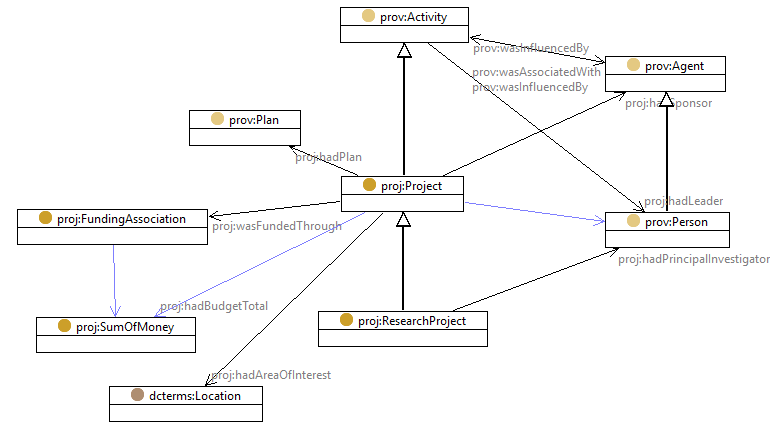-
Notifications
You must be signed in to change notification settings - Fork 0
New issue
Have a question about this project? Sign up for a free GitHub account to open an issue and contact its maintainers and the community.
By clicking “Sign up for GitHub”, you agree to our terms of service and privacy statement. We’ll occasionally send you account related emails.
Already on GitHub? Sign in to your account
which ontology to use for projects, organisations and deliverables #5
Comments
|
Comment by TomasR:
Comment by AnnaF: |
But even the
|
|
It is important to keep in mind how the Semantic Web allows you to use all these ontologies together, not having to select one over the other. For instance: <https://soilwise-he.eu/>
a proj:ResearchProject,
dbo:ResearchProject,
vivo:Project,
eurio:Project . |

Various ontologies exist to register projects, some research:
roleclass (Takes_role). dingo does not define deliverables of a project, dingo:organisations are defined as closematch to foaf:organisationsteamand funders throughstakeholdermemberto indicate participation of an organization (or person) andfunding(asgrant) to indicate funding optionsThe text was updated successfully, but these errors were encountered: